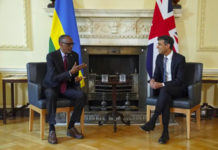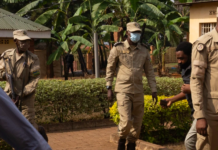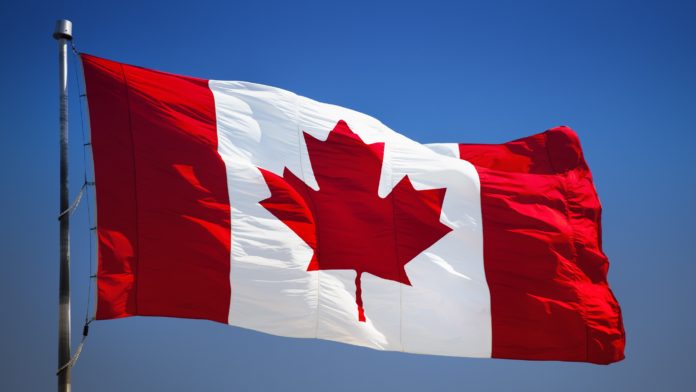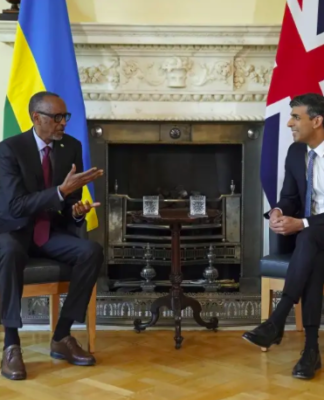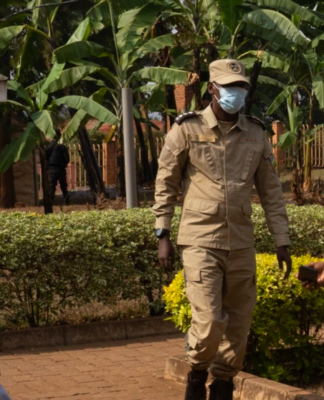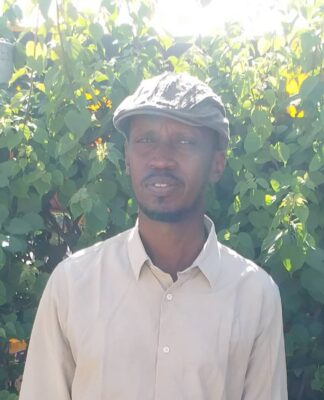Canadians inside and outside are responsible for the reputation of their country and their people. There are many heavy cases that torment and prevent people here to sleep deeply these days. The promise not kept by the Canadian Embassy in Dakar to provide drinking water to poor people in the village of Montreal and the allegations of $ 8 million in tax evasion by a Quebec company are worthy of note. to be underlined in passing. In the Philippines, some Canadian companies are accused of leaving toxic and dangerous wastes on the ground, and thousands of people are also reported to have been affected by mining waste. Some authors say that the Canadian presence in the Philippines is a problem, especially as the federal government continues to support irresponsible actions by Canadian mining companies.
Elsewhere, there is reported escape of toxic and carcinogenic dust impacting a population of one hundred and twenty thousand inhabitants for years. For example, the country’s environment ministry accused CBG (Guinea Bauxite Company) and Rio Tinto Alcan of being irresponsible polluters.
Yet, in general, Canada’s good reputation in the world is undefiled. But it is continually harshly tested by the irresponsible behavior of some of our compatriots and our companies abroad. There are now world-defining facts that betray the image of this country and its kind people. These are serious allegations for which Canadian justice has been seized and that it has agreed to say the law. At the end of this trial, and hopefully, the jurisdiction of this country will once again wash the black dots that appeared on the notoriety of this beautiful and generous country, Canada. Sanctioning the culprits and telling them that their actions are not accepted anywhere, not even in Africa, would be an exemplary precedent for the progress of human rights. As a result, our justice system would send a clear global message to its citizens who would be tempted to deviate from the right path. This is currently the problematic presence of a Canadian mining company (Nevsun Resources) in Eritrea.
Eritrea in the world
The Republic of Eritrea (Eritrea English, Erra Tigrina) is a country in northeastern Africa. At the edge of the geopolitical region of the Horn of Africa, its neighbors are Djibouti to the south, Ethiopia to the west, and Sudan to the north. Its area is 121 144 km², the equivalent of North Korea (but five times smaller than France). Its capital and largest city is Asmara with 431,000 inhabitants (census of 1995) and it divided into six provinces (awraja): Anseba, Debub, Debub-Keih-Bahri, Gash-Barka, Maekel and Semien-Keih-Bahri. The name of Eritrea comes from the Greek eruthros meaning “red” because of the proximity of the Red Sea. Conquered many times during the twentieth century, first by the Italians and then by the British and finally by the Ethiopians, Eritrea gained independence in 1993, after a liberation war that lasted thirty-five years. Its population is around 6.3 million people with a gross domestic product of 3.4 billion US dollars. Muslims account for 45% of the population, compared with 45% for Coptic Christians and 10% for other faiths. Most Coptic Christians are traditionally settled on the Eritrean plateau. Muslims generally live on the Red Sea coast and in some urban centers. More than 60 religious congregations are at work in this country.
Situation of human rights in this country
In Eritrea, one of the worst dictatorships in the world remains in power through terror, mass surveillance, large-scale torture, arbitrary detention and forced labor. These violations “of a scope and magnitude rarely seen elsewhere” could constitute “crimes against humanity”, concludes a recent report of the UN commission of inquiry on human rights in this country of the Horn of Africa. In addition, the UN commission of inquiry published on June 8, 2016, believes that this country of East Africa has been guilty of crimes against humanity. There are secret prisons in this country where sophisticated forms of torture are practiced, forced labor for a large part of the youth, thousands of disappeared and a general terror. The commission concluded that Eritrean leaders have been guilty of crimes against humanity. Crimes of slavery, imprisonment, enforced disappearance, persecution, rape, murder and other inhumane acts have been committed as part of a widespread and systematic campaign against the civilian population since 1991. It appears that a Canadian mine was built in part by the forced labor of hundreds of workers conscripted by this totalitarian Eritrean government accused of serious human rights violations. Moreover, it is an opaque and combinatorial state system, quick to render services to the powers of the moment, provided it is dragged a small envelope and leaves to disown its alliances of yesterday, exploiting its population for the benefit of its ruling class, liar and concealer with unprecedented tools of repression. The freedom of religion enshrined in the Constitution (article 19.4: “Every citizen has the freedom to practice any religion and to practice it”) does not seem to be well respected because those who practice an unrecognized religion are subject to arrests by the police. Hundreds of members of unrecognized churches are now in prison. Yet, according to the Eritrean Constitution, religious persecution is prohibited and the government claims to respect freedom of worship.
The facts of the Canadian civil lawsuit against Canadian mining, Nevsun Resources
At a time when the world is concerned about the tragedy of migrants, a Canadian court decision has decided to sue Nevsun Resources for slavery in a gold, copper and Zinc a Bisha deposit, 150 km west of Asmara, the capital. The mine is 60% owned by the firm and 40% owned by the State of Eritrea.
In fact, 52 people filed a lawsuit in Canada for a system of forced labor coupled with degrading treatment of which they were victims and of which Nevsun Resources was not only an accomplice, but the main beneficiary. The complaint dates back to 2014, after a first group of 3 people managed to reach Canada. Their number quickly grew to 57, all of whom managed to win a foreign country. The workers were army recruits, where they were forcibly recruited for compulsory military service of limited duration. Identified for their construction skills, they had been assigned to two state-owned companies, Siegen and Mered, Nevsun’s subcontractors. The slave soldiers received a little food and water, worked for endless days and were tied to each other at night to prevent them from escaping. Of course they received punishments if the work was poorly done or slow. Conditions similar to slavery.
In November 2017, the court rejected Nevsun’s claim that the complaint should be heard in Eritrea rather than in Canada. Newbury J. described the situation in Eritrea as “unfavorable to holding a trial, or favorable to holding a trial presided over by a judge that is not truly independent of the interests of the state in view of a legal system largely influenced by the President and military supporters of the regime. It also allowed the plaintiffs to pursue their claims of crimes against humanity, slavery, forced labor and torture. The court also dismissed Nevsun’s argument that the company should benefit humanity because of the possibility that the activities of the Eritrean government would be targeted, including serious allegations of human rights violations. Judge Newbury, who relied on a recent judgment in the United Kingdom, wrote that “torture (and I will add forced labor and slavery”) contravenes the peremptory rules of international law as well as the values of Canadian domestic law. “Also, on June 8, 2017, the Supreme Court of Canada also refused to hear the appeal of Tahoe Resources Inc. (Mining Company) in a civil lawsuit filed by several Guatemalans seeking redress for injuries sustained during the violent crackdown on a peaceful protest outside the Tahoe mine in Guatemala.
This is the first time a Canadian court has recognized that a company can be subject to a civil suit based on international law and human rights.
What have the Canadian governments done to these allegations of slavery and human rights violations by their companies?
The courageous decision of Canadian judges to want to give these people their dignity at all costs is to be applauded. We must also reflect on the different African judicial systems where in reality no serious form of justice is possible. Unfortunately, mistreatment and slavery still exist on the soil of the old black continent. Black rulers still mistreat their people in order to receive commissions and to please Westerners who are in fact leeches or vampires. It is important for Africans to know that they can apply to Canadian courts for inhuman, degrading and other forms of treatment, civil, criminal and criminal prosecution for redress. Many Canadian organizations are there to assist and assist them.
Also, Saudi Arabia would be a paradise compared to Eritrea where serious allegations of human rights violations are often denounced. The current Liberal government has overreacted on the rights situation in the country of the prince inheriting Mohammed Ben Salman al-Saud. But we do not hear it, otherwise we rarely hear about it in Africa and elsewhere. Would this lack of reaction or this little reaction be a complicity in order not to harm the interests of our companies abroad? As we say, there is always a reason or justification for a behavior even if it would be difficult to find. We will come back to it after the trial to inform the public on the final verdict of the Canadian federal court (to follow).
Gondiel Ka
Montreal, Canada
chronicler

